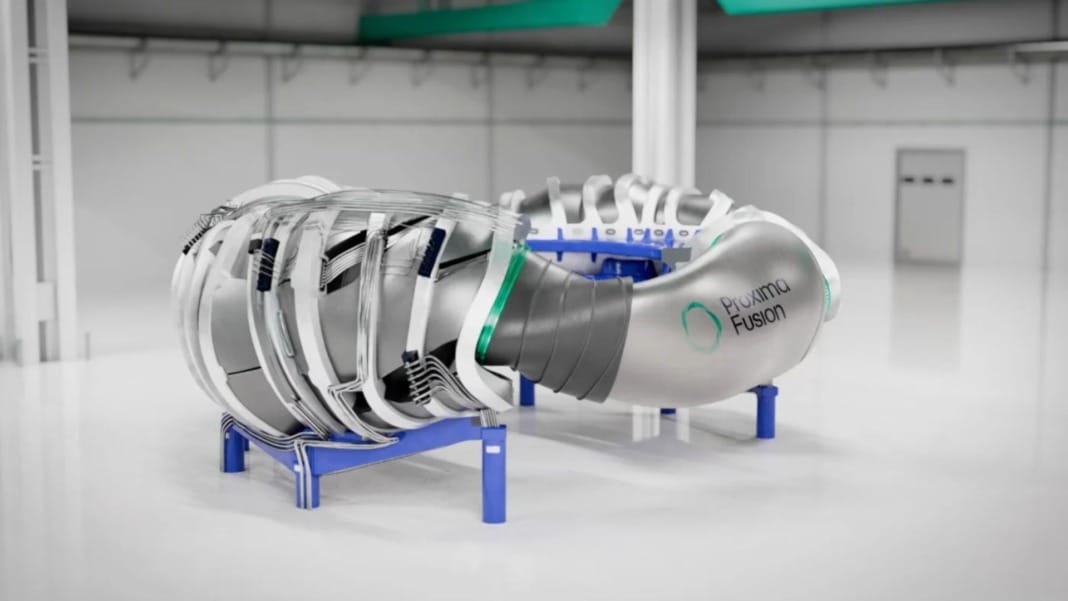A German startup, Proxima Fusion, has taken a significant step forward in the quest for limitless clean energy. The company, founded just two years ago, has published its plans for a fully functional fusion power plant in a peer-reviewed journal. This development is being seen as a significant leap in nuclear fusion technology, which has the potential to revolutionise energy production worldwide.
Nuclear fusion offers a cleaner alternative than current nuclear fission reactors, which generate radioactive waste. It produces vast amounts of energy without carbon emissions and only minimal radiation. The challenge, however, has always been building a stable and reliable fusion reactor.
Proxima’s breakthrough in fusion reactor design
There are two main types of fusion reactors: tokamaks and stellarators. Tokamaks use electromagnets and an induced plasma current to contain fusion plasma, but they are prone to instability. Stellarators rely solely on external magnets, making them more stable and capable of continuous operation.
Proxima Fusion claims to have solved many of the issues that have plagued previous designs. According to Dr. Francesco Sciortino, co-founder and CEO of Proxima Fusion, the company’s ‘Stellaris’ design is the first peer-reviewed concept that proves it can operate stably and continuously without the disruptions seen in tokamaks and other approaches.
The research was published in Fusion Engineering and Design, and Proxima made its findings available to the public to support open-source science. “Our American friends can see it. Our Chinese friends can see it. We claim that we can execute on this faster than anyone else,” according to Sciortino in an interview. “We create a framework that integrates physics, engineering, and economics. So we’re not just a science project anymore.”
Sciortino also highlighted the speed at which the company has progressed. “We originally estimated it would take two years to complete the Stellaris design, but we finished it in one. We’ve effectively accelerated our timeline by a year,” he added.
Proxima’s path to a commercial fusion reactor
Proxima Fusion has secured US$35 million in funding from the European Union and the German government and US$30 million from venture capital investors. With these resources, the company aims to build a fully operational fusion reactor by 2031.
Proxima is competing against other firms in the fusion energy sector, including Commonwealth Fusion Systems, which Bill Gates’s Breakthrough Energy Ventures back. Despite the competition, early investors in Proxima believe the company is in a strong position. Ian Hogarth, a partner at Plural and one of Proxima’s first investors, praised the startup’s achievements, saying, “When Proxima started, the founders said, ‘This is possible, we’ll prove it to you.’ And they did. Stellaris positions QI-HTS stellarators as the leading technology in the global race to commercial fusion.”
With its innovative approach and rapid progress, Proxima Fusion is emerging as a key player in the push towards a future powered by clean and limitless energy.





